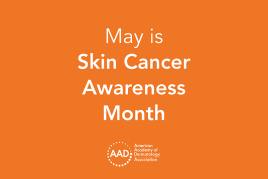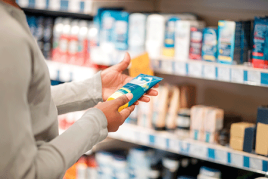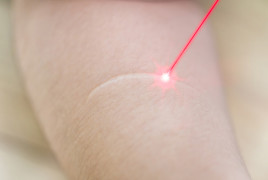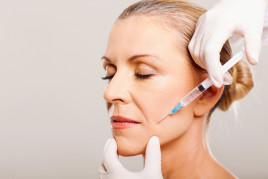How to select anti-aging skin care products
Dermatologists share their insider tips

Start with sunscreen and moisturizer. Dermatologists agree that sunscreen and moisturizer are the two most-effective anti-aging products you can buy. Using these every day can make a noticeable difference.
Treat your #1 aging-skin concern. Give sunscreen and moisturizer a few weeks to work. Then look at your skin. Is there still a sign of aging that bothers you?
Buy a product formulated for your skin type. Your sunscreen, moisturizer, and other anti-aging skin care products will work best if they are formulated for your skin type. For example, if your skin tends to be oily, select a moisturizer made for oily skin. If you have sensitive skin, you want to see the words “sensitive skin” on the label.
Read product labels and select a product that offers all of the following:
Have realistic expectations. Exaggerated promises, such as look 10 years younger overnight or quickly reduces all signs of aging, are too good to be true. It’s important to remember that anti-aging skin care products deliver modest results. You cannot get the results of a facelift from a cream.
Tip
“Clinically proven” means that the product was given to consumers to try. It does not mean the product underwent clinical trials and received approval from the U.S. Food and Drug Administration (FDA).
Select a product within your price range. It’s human nature to think that the more expensive the product, the better the results. Effective anti-aging products come in all price ranges.
Maximize the results you see
Once you’ve selected a product, you can maximize its effectiveness by following tips that dermatologists share with their patients.
 Think sun protection during Skin Cancer Awareness Month
Think sun protection during Skin Cancer Awareness Month
 How to care for your skin if you have lupus
How to care for your skin if you have lupus
 Practice Safe Sun
Practice Safe Sun
 Sunscreen FAQs
Sunscreen FAQs
 Fade dark spots
Fade dark spots
 Hidradenitis suppurativa
Hidradenitis suppurativa
 Laser hair removal
Laser hair removal
 Scar treatment
Scar treatment
 Botox
Botox
 Kids' camp - Camp Discovery
Kids' camp - Camp Discovery
 Dermatologist-approved lesson plans, activities you can use
Dermatologist-approved lesson plans, activities you can use
 Find a Dermatologist
Find a Dermatologist
 Why choose a board-certified dermatologist?
Why choose a board-certified dermatologist?